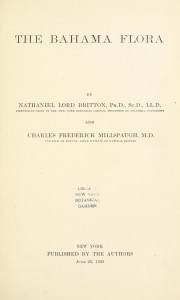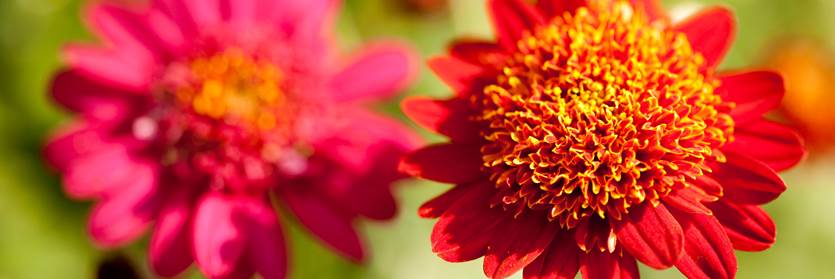Natural History Leaps from Printed Page to Free Online Access
Posted in Learning Experiences, Science on October 22 2009, by Plant Talk
 |
Susan Fraser is Director of the LuEsther T. Mertz Library. |
 Paradigm shifts have altered the way knowledge is communicated—from the written word to the printed word and now to the digital word. The proliferation of electronic resources and rapid changes in technology require increased flexibility in how libraries acquire and disseminate knowledge. One remarkable example is the Biodiversity Heritage Library (BHL), a consortium of natural history libraries that are digitizing and making freely available the world’s literature on biodiversity. Collectively, the 12-member consortium holds most of the recorded knowledge of the natural world, over 2 million volumes.
Paradigm shifts have altered the way knowledge is communicated—from the written word to the printed word and now to the digital word. The proliferation of electronic resources and rapid changes in technology require increased flexibility in how libraries acquire and disseminate knowledge. One remarkable example is the Biodiversity Heritage Library (BHL), a consortium of natural history libraries that are digitizing and making freely available the world’s literature on biodiversity. Collectively, the 12-member consortium holds most of the recorded knowledge of the natural world, over 2 million volumes.
The Botanical Garden is a founding member of the BHL, which began in 2006 and is expanding to include a BHL Europe and partners in China and Australia. It has rapidly become an international sensation.
The project saves immense hours of research time for both information seekers and library staff. The Mertz Library research staff can now refer to the BHL portal to fill interlibrary loan requests or research inquires. Previously, staff would photocopy pages of books or journal articles upon request. Now, if a scientist in South Africa needs to reference The Grasses and Grasslands of South Africa (1918) for instance, she can do so on her own and from her own computer.
By cooperating in this multi-institutional effort, BHL members can perform bulk digitization with limited risk of duplication, lack of standardization, or loss of intellectual integrity while providing a huge amount of biodiversity material online. To date, the Mertz Library has scanned over 6,000 volumes amounting to over 3 million pages. The BHL portal currently contains almost 15,000 titles and 16 million pages, and it continues to grow.
Among the neat features of the BHL Web site is a spotlight on a “book of the week,” a map showing the number of titles and which ones are about that region of the world, and the ability to browse by publication year (the earliest is 1480!) or even by the top 100 subjects.
The Biodiversity Heritage Library is a member of the Open Content Alliance, which advocates for free and open access to libraries and literature. In addition to providing access to scanned literature, the BHL enables users to not only locate a book by title or author, but also search the content. Search applications—known as taxonomic intelligence tools—embedded in the search mechanism, allow searches across multiple volumes to find a citation, author, or particular genus or species name within. This provides researchers the ability to search across millions of scanned pages to access hundreds of relevant citations.
To make it all happen, the BHL has partnered with the Internet Archive, which performs most of the digitization. The Mertz Library digitization team prepares lists of materials to be scanned and prepares the associated metadata so the book can be tracked and searched once it is made available online. Staff process cartloads of books to ship to the Jersey City site where the books are digitized on book-friendly scanners called Scribes. Once scanned, the books appear online within 72 hours.
This project benefits researchers around the globe, including those in developing countries without access to a great resource such as the Mertz Library. The fact that we can make these works freely available is a major milestone in the dissemination of information. I enthusiastically support and am truly proud to be involved in the Biodiversity Heritage Library.

